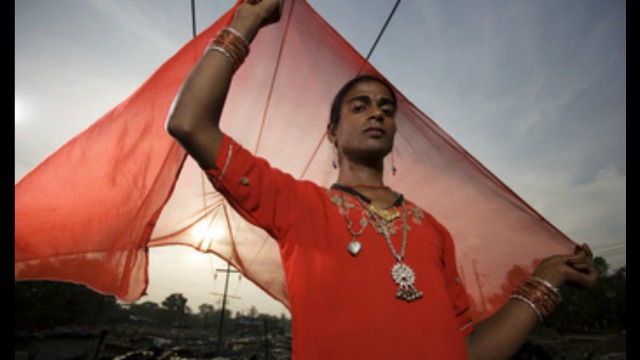
May 17 is observed worldwide as International Day Against Homophobia and Transphobia, an initiative taken by the IDAHO Committee. On this day, the question of what prevents India from being a global partaker in the fight against homophobia and transphobia becomes pertinent.
The fight for LGBT rights has been on for a long, long time now. Delhi High Court's judgement in 2009 decriminalised consensual sex between two adults. But in 2013, the decision was overturned by the Supreme Court, effectively giving credence to Section 377 once again. This was a huge step back for the efforts of the LGBT community.
The transgender community, however, had cause to celebrate when the Supreme Court finally attributed the status of a 'third gender' to them in 2014. The landmark judgement acknowledged them as socially and economically backward and said they would be given educational and employment reservation as OBCs.
The two-judge bench said “recognition of transgenders as a third gender is not a social or medical issue but a human rights issue. Transgenders are also citizens of India. The spirit of the Constitution is to provide equal opportunity to every citizen to grow and attain their potential, irrespective of caste, religion or gender.”
In 2015, just over a year later, the Rajya Sabha passed a bill called 'The Rights of Transgender Persons Bill, 2014'. The private bill gave 2% reservation in government jobs and educational institutions to the transgender community, made provision for the creation of welfare boards at Centre and state level and Transgender Rights Courts, along with legal rights that sought to protect transgender children from abandonment.
The main aim of implementing the Bill was to aid in overall development and 'welfare' and to end discrimination, especially in the area of employment.
It's been over a year since the Rajya Sabha passed the historic Bill but the situation for transgenders in India does not seem to have improved significantly. The law guarantees equality on paper. The society still seems to reluctant to give the transgenders the opportunities they deserve.
The main problem stems from the fact that this community does not have much access to education. This, in turn, denies them the opportunity to come forward and demand their rights, as most of them are still unaware that such a law has been passed. Sridhar Rangayan, founder member of Humsafar Trust and filmmaker, says, "Most of the transgender people do not know whom they can reach out to for help; most of them come from underprivileged socio-economic backgrounds, so that disempowers them even more."

Social stigma, lack of education, isolation and, most importantly, the hierarchical system of the transgender community that gives a lot of power to the community elders, has held them back from education. Harish Iyer, an active equal rights activist, says, "Social stigma takes a lot of time to get wiped off. There needs to be a lot of groundwork that needs to be done because the law is just one step and a lot of measures are yet to be taken after this first step."
Iyer also pointed out that the law is a facilitator and can be used as an accelerator, but it was not an enabler per se. He gives the example of women and how discrimination against them exists even though they have legal rights. He believes that the only way any law can be implemented is of the people and the organisations become the "enablers" themselves.
There are a lot of practical issues that the community faces as well. Founder and Director of Naz Foundation, Anjali Gopalan explains that in their experience of dealing with transgender women, they have discovered that even though legal rights have been granted, the systems are not in place to take care of their problems. Transgender women cannot use the same washrooms as men and women are not comfortable with them using the same washroom. She says, "Public toilets for all women in this country is a big problem and if you're a transgender, it just makes it all the more difficult."
Another issue is that transgender women are sent to male prisons, where they face severe abuse and sexual exploitation. The stigma makes it all the more difficult for sexually abused people to complain to the police and such cases often go unreported.
Lack of access to education coupled with discrimination, stigmatisation and subsequent lack of formal employment, pushes them toward sex work and begging. Unprotected sex has made them all the more susceptible to sexually transmitted diseases. In an annual report, the National AIDS Control Organization's said that India's transgender population was “emerging as a risk group with high vulnerability and high levels of HIV.” The sexual health of this community has been neglected for years. The situation worsens as they fail to get tested due to fear of further isolation and lack of nutrition.

Social stigma is a big reason India's sexual minorities remain on the fringes. Image Courtesy: Getty Images (Representational Image)
Our country needs to embrace its sexual and religious minorities.The transgenders are a more physically visible community and hence have often faced more abuse and discrimination. Sex work makes them vulnerable and an easy target for the police. It is important for us as a society to become sensitive to these issues.
Our police and legal machinery also needs to be sensitised towards the issues of the LGBT community. The need of the hour is to take major steps towards including our sexual minorities into the mainstream.
India is certainly inching towards modernity but our attitude towards LGBT rights reflect how our country is still enveloped in Victorian-era morality. Needless to say, Section 377 needs to go. There is no place for a draconian, colonial-era law which targets the LGBT community in our society. Doing away with it could be tremendous step in rooting out transphobia and homophobia.